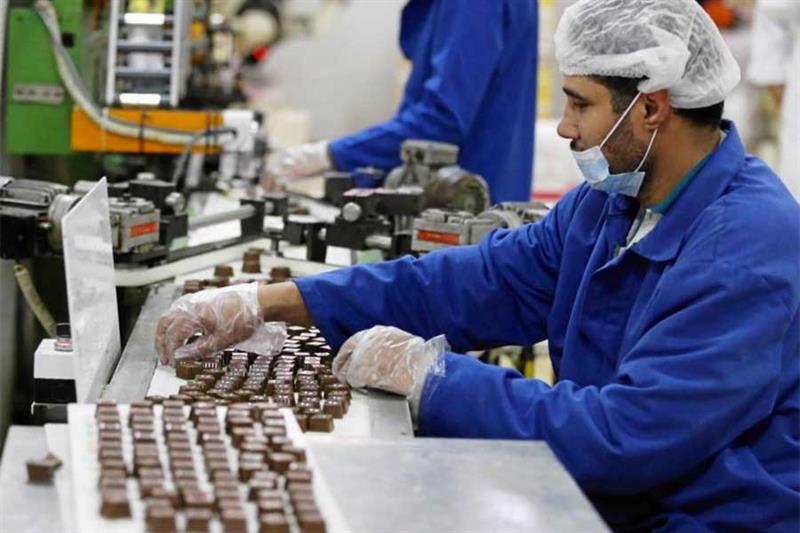
File Photo: Egyptian worker in a factory. Al-Ahram
The report issued on 5 June showed that the index measuring non-oil private sector activity in Egypt rose slightly from 47.3 in April to 47.8 in May.
However, Egypt is still below the 50-point threshold which marks a state of stability in the market, where neither contraction nor growth is achieved.

"The Egypt PMI remained in negative territory in May, but showed further promise that current economic headwinds were beginning to dissipate…Two main subindices of Output and New Orders rose to their highest levels in 17 and seven months, respectively," said David Owen, Senior Economist at S&P Global Market Intelligence.
Softer inflation
The inflationary pressures on private businesses in Egypt relaxed a bit in May, but their impact on sales and production stands, the S&P report said.
The demand saw some degree of improvement for some companies, while others still suffer from a shrinking in new orders.
Egypt's annual headline inflation dropped to 31.5 percent in April, down from 33.9 percent in March, recording the first monthly deceleration in 10 months, but a leap from 14.9 percent in April 2022, according to official data.

Continuing production & sales pain
Production is at its best in a year and a half, but companies are still reducing their output to make up for the decline in sales caused by inflation.
Meanwhile, the decrease in sales to foreign clients by Egyptian non-oil companies has registered its lowest level in 2023.
Purchases of production inputs by non-oil businesses in Egypt declined in May due to increasing prices, while restrictions on imports caused the delivery time of companies' purchases to lengthen, weighing more on their inventories and destabilizing the supply side of the economic equation.
"Companies signalled that input cost pressures were again much softer than at the beginning of the year, as a period of stabilisation in the Egyptian pound versus the US dollar helped to cool import markets. This led to another relatively soft rise in selling charges, providing some hope that consumer price inflation will fall again in May
The pound has been relatively stable since February 2023. It is now traded at around EGP 31 against the dollar.
Employment losses
Layoffs in the Egyptian non-oil private sector stand for the sixth month in a row due to the contraction in sales and liquidity. However, work backlogs continued to decrease.
It is worth noting that the unemployment rate in Egypt edged lower to 7.1 percent during the first quarter of 2023, compared to 7.2 percent in the previous quarter, according to a report by the Central Agency for Public Mobilization and Statistics.
Outlook
Confidence among businesses in the market improved slightly but was still below normal levels. Companies surveyed by S&P were concerned about inflation, demand, and supply.
"Confidence levels remain broadly subdued, with just six percet of respondents expecting a rise in activity over the next 12 months. Although, this was still better than the survey-record low registered in April."
Short link: